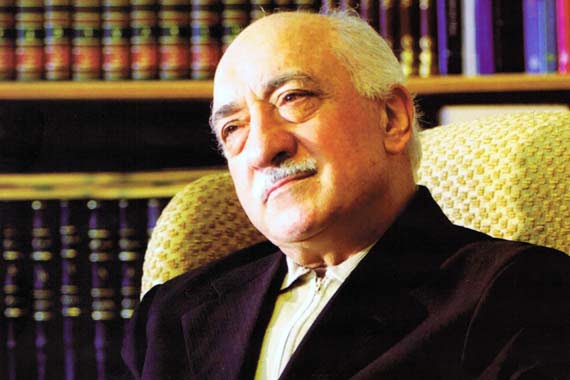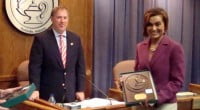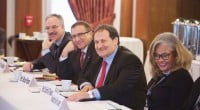US conference discusses Gülen movement contributions to peace

Date posted: November 3, 2009
Officials from the US Department of State, a retired ambassador, academics and others gathered at the University of Maryland, College Park campus, on Thursday to participate in a Rumi Forum Maryland conference on the Gülen (Hizmet) movement’s contributions to world peace.
The “Preventing Violence and Achieving World Peace: The Contributions of the Gulen Movement Conference” was held on Oct. 29, co-sponsored by the Rumi Club, the Rumi Forum Maryland and other organizations at the University of Maryland, College Park. Several distinguished speakers, including a former ambassador, a US State Department official and academics, talked about the contributions of the Gülen movement to world peace.
The conference opened with a keynote speech by Dr. Ori Z. Soltes from Georgetown University, titled, “Socrates, Violence, Education, the Gulen Movement and Peace.” Dr. Soltes noted that like Fethullah Gülen, Socrates emphasized the importance of ethics and the process of dialogue for bringing morality into all facets of life.
Gülen emphasizes that education is the ultimate means through which we can deduce the divine will and thus improve the world. He noted that unlike Socrates, the Gülen movement has been able to put Gülen’s ideas into action through its varied educational programs, media, and cable and Internet programming.
The conference featured two panels, one titled “Preventing Violence & Achieving World Peace” and the other, “The Contributions of the Gulen Movement to World Peace.” Dr. John Davies from the University of Maryland, College Park, opened the first panel discussion by sharing findings from a comprehensive research program that has identified societal factors which strongly correlate with the likelihood or absence of violence and wars within and among nations. Peter Kovach, from the US Department of State, said the Rumi Forum in Washington, D.C., and the Los Angeles-based Pacifica Institute are some of the most effective peace organizations that build bridges between people from diverse backgrounds. David Newton, former US ambassador to Iraq and currently with the Middle East Institute, shared his experience with Radio Free Iraq and stated that the media is an empty vessel, and it can be filled with tolerance or intolerance and incites violence or peace.
The second panel shifted focus to a more complete understanding of how the Gülen movement conceptualizes peace and ways to achieve it. Dr. William Taft Stuart of the University of Maryland, College Park, discussed the social capital that the Gülen movement brings to peace building, including its educational activities, forum activities and media outlets, especially the Zaman newspaper. Dr. Pim Valkenberg from Loyola University Maryland was the final speaker. He stated that Gülen’s notion of peace is based on an analysis of three roots of violence — ignorance, disunity and poverty — and that his eponymous movement’s activities address these through its schools, dialogue groups and charitable organizations, such as Kimse Yok Mu. According to Gülen, for a Muslim, peace cannot be separated from religion because a Muslim desires in his or her daily life to be at peace with all of creation.
Source: Today’s Zaman, 31 October 2009, http://www.todayszaman.com/news-191562-us-conference-discusses-gulen-movement-contributions-to-peace.html
Tags: Conferences on Gulen | Hizmet (Gulen) movement | North America | Peacebuilding | USA |
























